African Americans changing life for homeless pets

Have you heard of Dr. Lila Miller? She’s a veterinarian who is not only an award-winning leader in her field but thanks to her, literally millions of homeless pets have received basic medical care in animal shelters.
She was also one of the first African American women to graduate from the Cornell University College of Veterinary Medicine in 1977. If you’ve ever adopted a pet from a shelter, you have her to thank for the fact that your pet was likely vaccinated and received basic medical care during their shelter stay.
Juneteenth is this Saturday and in honor of it, we’re recognizing African American people who, just like Dr. Miller, are changing the animal welfare world for pets. It’s also important to recognize that animal welfare is an overwhelmingly white field, and it has been since it’s early 1800’s inception. That’s a problem not only because it’s inequitable for people, but it has a real impact on our four-legged friends.
“The only way we’re going to save all the animals is by relying on all the people. That obviously should include African Americans,” says James Evans, CEO & Creative Director of C.A.R.E., Companions and Animals for Reform and Equity™.
“Animal welfare is an incredibly broad field, from executive directors to people who clean kennels,” James says. “And I think all those jobs have such incredible value and lifesaving potential.”
We reached out to people both in leadership positions, or who are leading from the positions they’re in, to ask them what needs to change and how to include more African American people in saving pets’ lives.
Cat Small
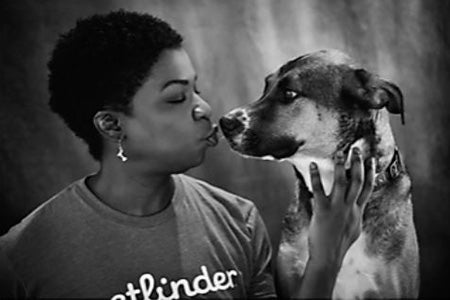
Tell us what you do in animal welfare, past and present? I am the Purina Shelter Champions Lead and Petfinder Engagement Specialist, which essentially means I’m a connecter between Purina and the many shelters that we support. This includes 48 through our Purina Shelter Champions program, which provides food and support to shelters, and the Petfinder platform that connects adopters with available pets from more than 10,000 shelters and rescues across the U.S. and Canada. For eight years, I’ve been responsible for delivering animal welfare strategies and support to Purina shelter partners and onboarding new Petfinder members on to the platform. It all ladders up to our mission of bringing pets and people together.
What do you want people to know about working in animal welfare? Animal welfare is a unique environment with incredibly passionate people. There are a lot of emotions involved, and good intentions can at times be overshadowed by the passion and love people have for animals, which sometimes comes at the expense of empathy for the people involved. There continues to be an opportunity for evolution and training in the space to make sure that the love of animals and empathy for the people who are seeking to adopt them have an equal role in finding great homes for pets.
What do you think needs to change to make animal rescue and welfare work more welcoming to African American people? Change will start with acknowledging that implicit bias exists in the animal welfare community that is keeping people who look like me from applying for or getting work, and also from being able to adopt pets. Purina recently helped fund research by CARE (Companion Animals for Reform and Equity) and Harvard’s Project Implicit to help establish a baseline in understanding of how organizations viewed themselves compared to their actions. The reality is that less than 2 percent of people working in pet welfare are Black, which not only influences who adopters see when they visit a shelter but also has a role in who is able to adopt a pet if two racially different families apply for the same pet.
I encourage organizations to seek and highlight positive stories about African Americans as volunteers, employees and adopters, and to be mindful of having an organization that truly reflects the community it serves. Too often I see imagery and stories centered around helping underserved African American communities and highlighting a stereotypical lack of resource to keep their pets. But what I rarely see are articles about African Americans who are positively contributing to the pet welfare world and being incredible pet owners themselves. I’d like to think I’m an example of the latter, and I believe my 5-year-old rescue, Mr. Carrot, who has had five knee surgeries, and is the king of my household, would agree.
What would you like to say to African American people who want to get involved (or more involved) in working with animals and their people? A career working with animals can be extremely rewarding and satisfying, however, it can be hard to know where to begin to make your dream become reality when you have had little or no prior experience. Especially in an industry with a small representation of African Americans. Identify what in Animal Welfare motivates you, do research and have realistic expectations. Then get a real taste for a potential career by volunteering or fostering at nearby shelter/rescue.
Mueni Rudd
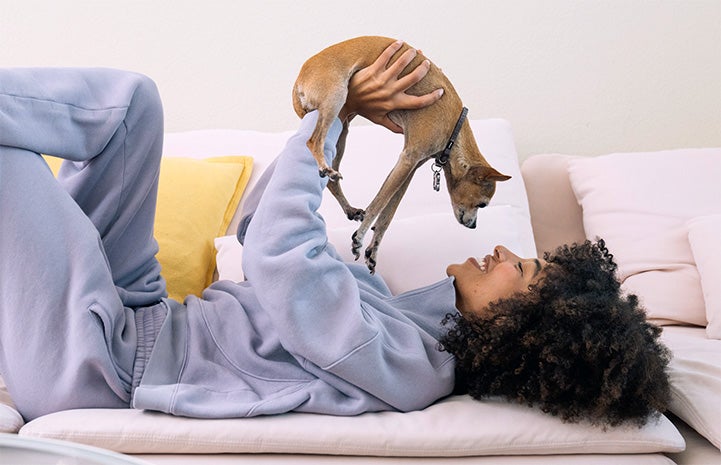
Tell us what you do in animal welfare, past, and present? I am here to support and be in constant conversation with the Black community. Currently, I serve in the role of Senior Director of Research & Development with CARE (Companions and Animals for Reform and Equity). I am thankful to work with an organization that divests from dominant society’s approach to supporting animal welfare.
I consider myself new to the animal welfare industry. My first position in this industry was as a Diversity, Equity, and Inclusion Strategist with an organization based in Texas. In that role, I significantly increased Black participation and involvement. I also initiated a trust building relationship with the local historically Black university resulting in at least one new Black hire before my exit.
What do you want people to know about working in animal welfare? It appears much of the animal welfare industry, unfortunately, lacks accountability and is contributing to colonial harm against Black and other historically marginalized groups. I have observed leadership in this industry attempt to manipulate Black and Brown people into thinking docility is a virtue. I have not seen value placed on the lived experiences of employees, volunteers, and stakeholders who look like me. I have seen the self-interest of predominantly white organizations in this industry go unchecked by their peers.
What do you think needs to change to make animal rescue and welfare work more welcoming to African American people? I challenge white and other historically privileged people in animal welfare to take ownership of their positionality on an individual and organization level. Begin choosing transparency instead of self-appointed allyship. Racialize the diversity you invest in. Have the integrity to acknowledge and repair the harm you or your organization has caused. Normalize paying Black people their worth.
What would you like to say to African American people who want to get involved (or more involved) in working with animals and their people? Prioritize your humanity. Say no to what does not serve you. Black people belong in this industry. Our ancestors have a history of harmonious relationships with animals and the environment. That knowledge and practice of connectedness is ancestral. We must reimagine animal welfare with us in it. Reciprocity and healing are key.
Dr. Michael J. Blackwell, DVM
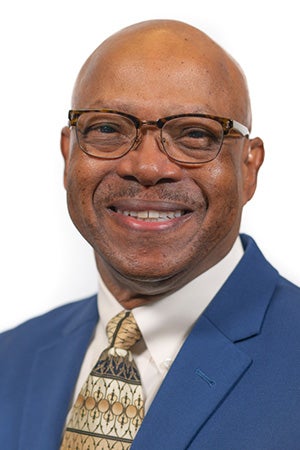
Tell us what you do in animal welfare, past and present? I am a veterinarian who grew up helping my dad in his veterinary practice in Oklahoma. So, animals have always been in my life. We had quite an assortment of animals, including cats and dogs, cattle, horses, pigs, and poultry. As a veterinarian, I have had the opportunity to work on behalf of animal welfare through private practice, FDA drug approvals, public health, and veterinary education as the University of Tennessee College of Veterinary Medicine's dean. Five years ago, the Access to Veterinary Care Coalition, which I chaired, was established specifically to address the lack of access to veterinary care for millions of pets. That work morphed into the Program for Pet Health Equity (PPHE), which I direct.
The mission of PPHE is to facilitate better collaborations and alignment of resources and activities to ensure all pets have access to veterinary care, especially when ill or injured. Unfortunately, too many pets do not receive needed veterinary care. As a result, they suffer needlessly or die prematurely. Also, their families experience distress when medical care is required but not available. The primary reason for the lack of veterinary care is directly related to the socio-economic constraints faced by many families who love their pets. AlignCare is our answer to improving access to veterinary care. When we consider the health benefits that humans derive from the human-animal bond, we must ensure low-income families can have pets. They, too, deserve to benefit from these relationships, and their pets deserve medical care.
What do you want people to know about working in animal welfare? Working on behalf of vulnerable individuals who need an advocate, including animals, feeds one's soul. As sentient beings, companion animals can teach us about love and loyalty. They can bring out the best in us, like compassion and forgiveness.
I continue to be amazed by how animals coexist with nature. They can teach us a lot as humans. As a veterinarian, I cannot help but admire how hard they strive to get back on their feet when recovering from an illness or injury, usually without complaint. When they communicate their gratitude for being helped, we receive something not available any other way.
What do you think needs to change to make animal rescue and welfare work more welcoming to African American people? Animal welfare organizations and veterinary service providers can and must do a much better job building and maintaining relationships with BIPOC communities. Establishing these relationships requires initiative and intent, done with cultural competence. A culturally competent organization endeavors to know the communities they serve, including BIPOC communities, and their organization's behaviors, attitudes, and policies reflect an understanding of the community's needs and challenges.
Animal control agencies must recognize that their law enforcement mission is a barrier to good relationships. Unfortunately, there is a long U.S. history of events that justify the lack of trust that BIPOC communities have towards law enforcement practices. Too often, the primary contacts a BIPOC community have with an animal welfare organization is someone policing their neighborhood, taking names, levying citations and fines, confiscating pets, etc. While these duties are sometimes necessary, there are alternative responses that build trust. For example, someone's dog is running loose, connect the family with organizations to help with fencing when there is a yard. If veterinary care is needed, know the difference between willful neglect and the need for assistance. Often help is available, but the family may not know how to access it. Thus, animal control agencies and animal welfare organizations have the opportunity to develop positive relationships with BIPOC communities.
What would you like to say to African American people who want to get involved (or more involved) in working with animals and their people? I encourage African Americans to seek jobs and careers working with animals. If a young person has expressed an interest in animals, find ways to support them and facilitate opportunities for hands-on experiences. Reach out to animal welfare organizations and veterinary service providers to establish a relationship, letting them know of the interest in working with animals. Work with animal welfare organizations to develop community programs that benefit people and animals.
The animal welfare and veterinary medicine industries are not diverse. From the outside, they do not appear to people of color as welcoming places to work. It is encouraging that there is growing interest in making our industries more diverse, equitable, and inclusive. African Americans and other people of color will respond with interest as we do better. We all should do our part to facilitate this change.
Johnny Jenkins
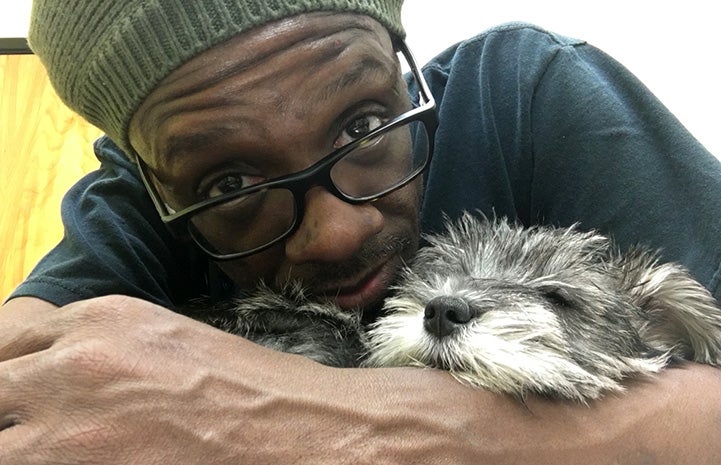
Tell us what you do in animal welfare, past and present? I recently accepted the opportunity to lead the research and development division for Companions and Animals for Reform and Equity (CARE). I’m excited to work with their talented leadership team to support CARE’s mission to bring equity, diversity and inclusion to animal welfare.
In 2016, PetSmart Charities introduced me to animal welfare to support lifesaving efforts to find homes for homeless pets. I was fortunate to serve as the grant’s manager responsible for the adoption program’s U.S. East region for five years. Prior to that, I served in various advocacy and non-profit management roles focused on developing and implementing programs to advance equity, diversity and inclusion.
The journey has provided many opportunities to engage and support mission-driven work. My lived experience and professional path include stints as a grass-roots organizer, grant-maker, and program director. It’s been great to be in positions where I can use my skills and lived experience to serve animal welfare, LGBTQ equality, and racial end economic justice.
I’m very grateful for the opportunity to align my personal passions and interest to CARE’s dedication to equity and social justice.
What do you want people to know about working in animal welfare? Inside animal welfare, we know it’s a field not lacking in compassion and love for animals. I’ve seen peers and colleagues expend the same energy for people. We have an opportunity to extend our mission-driven work to people as well. It’s a muscle we’re not use to flexing.
It’s important to acknowledge that when animal welfare identifies a challenge, it often rises to the occasion. Specifically, I often remind people how the field continues to execute strategies to resolve pet overpopulation challenges in impacted areas of the United States and Canada. At the same time, Best Friends and supporters have been crucial to increasing awareness and reducing euthanasia in shelters.
These are powerful examples of interest convergence that serve as reminders of animal welfare’s capacity to evolve and eliminate barriers to positive outcomes for companion pets.
What do you think needs to change to make animal rescue and welfare work more welcoming to African American people? Direct respectful engagement. Those three simple words require a lot of intentional self-reflection to ensure we’re not going into communities as saviors. The intent should always be as co-conspirators or partners in identifying opportunities to solve challenges that likely intersect with our mission-driven work in communities.
Currently, animal welfare has minimal involvement in black communities. It’s time to start doing the work and commit to building bridges and meaningful relationships with marginalized communities. There’s a wealth of knowledge in these communities worth making the effort to engage, and a great number of pets that need access to the services we provide.
In too many cases, animal welfare is only associated with animal control and law enforcement in Black communities. The small percentage of Black people that engage animal welfare services are often exposed to unwelcoming environments uncaring to their lived experience. Regretfully, the death of George Floyd and a deadly pandemic have exposed socioeconomic disparities that would have otherwise gone ignored.
What would you like to say to African American people who want to get involved (or more involved) in working with animals and their people? In general, I would love to encourage Black people to proactively engage their local shelters and rescues as staff, donors, volunteers and community partners. Unfortunately, I also feel a need to temper that response. Animal welfare has a lot of work to do to avoid doing further harm as we engage Black, Indigenous, and people of color (BIPOC). Some shelters have done an excellent job to advance racial equity, diversity and inclusion within their shelters and rescues. Nevertheless, much remains to be done.
I encourage BIPOC people with a passion for pets to take a leap of faith and engage their local shelters and animal services departments. For animal welfare, the only way to mitigate the systemic and unconscious biases that temper or mission-driven work is to engage marginalized communities as partners. In doing so, animal welfare must invest in building trust to establish authentic relationships. I argue that work starts with focus on BIPOC identified individuals currently working within our shelters and rescues.
We need marginalized communities to hold animal welfare to account, but more importantly we need them to continue nurturing community wisdom to provide their pets, families and communities with the best care available. And animal welfare must do the work and continue having hard, uncomfortable conversations about race and unconscious biases in the field. We need to work together to ensure all pets have an opportunity to live happy and healthy lives.
Donovan Dodds
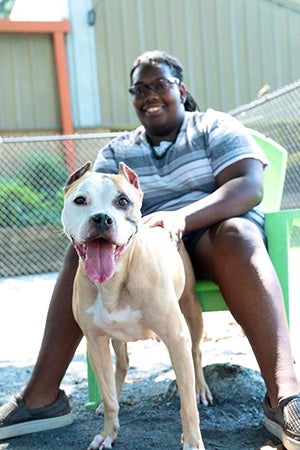
Tell us what you do in animal welfare, past and present? I have been involved in animal welfare in one form or another for over half of my life, mostly on the volunteering side. As a community liaison by profession, I use professional knowledge to create programming to better serve underprivileged communities. I have done everything from helping to form a “pawtography” photo team, to re-starting adoption events in the underserved south side of Atlanta.
What do you want people to know about working in animal welfare? Animal welfare is one of the most non-racially inclusive spaces I have ever operated in. The rescue world is extremely homogeneous when it comes to who is positions of power. This is extremely problematic when they are supposed to be serving black and brown communities but have no one that looks like that leading their orgs.
What do you think needs to change to make animal rescue and welfare work more welcoming to African American people? Animal rescue needs black people in high leadership positions and at the helm of discussions and rescue organizations. Pathways and access need to be given to allow black people to move up in the rescue world without having to play respectability politics. Black people know how to help other black people. Period.
What would you like to say to African American people who want to get involved (or more involved) in working with animals and their people? Do not be intimidated or dissuaded by the current climate in animal rescue. Remember that you are there to help the animals/people but you are NOT there to serve a system that doesn’t serve you. There are always avenues to get in and do lifesaving work. Connect with other black people in your community doing the work.
Dr. Callie Harris (Foley), DVM
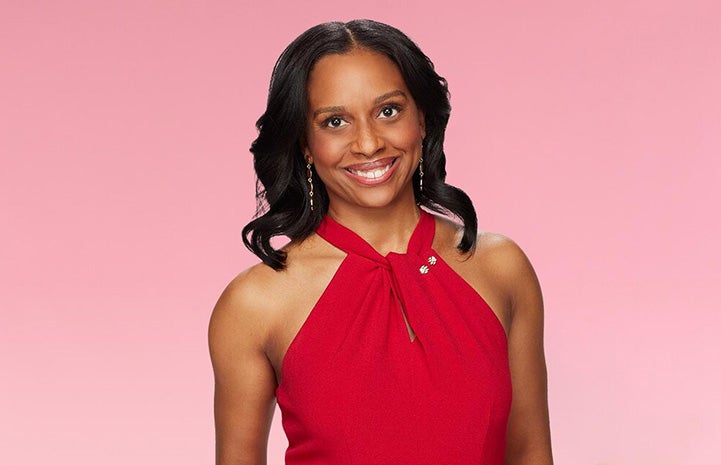
Tell us what you do in animal welfare, past and present? Professionally, I am a veterinarian at Purina! Purina has many animal welfare initiatives including passionate support of pet adoption, powering Petfinder which is the largest searchable database for adoptable pet and by providing resources to shelter/rescues all over. We have recently collaborated with C.A.R.E. in an effort to support improvement of diversity in the animal welfare space. Prior to joining Purina, I was an emergency vet and treated my fair share of strays, owner surrenders and even a few trauma patients from abusive homes. Personally, I have a bleeding heart like so many folks in our line of work, so I have fostered pets in the past as well as all three of my pups are rescues/owner surrenders!
What do you want people to know about working in animal welfare? Working in animal welfare is tough! On one end, many days can be super rewarding and you can feel like you are doing exactly what was intended for you. In other days, you may feel overwhelmed by the inability to help everyone and save every pet. It’s a tough pill that veterinarians have to learn to swallow early in our careers. At the end of the day, I do know that I am my part and my best and that is what helps me sleep at night.
What do you think needs to change to make animal rescue and welfare work more welcoming to African American people? That’s a tough question because I think its dependent on where you are and what aspect of animal welfare we are talking about. There are so many layers to this issue. What I know to be true is that the human animal bond is a mutually beneficial relationship. More African Americans have already discovered or are discovering this benefit and our rate and interest in pet adoption continues to rise. Plus, the ability to provide a home for a pet that truly doesn’t care about your race should supersede any conscious or unconscious biases put in place. My continued goal is to try and encourage more people of color and those from marginalized groups to pursue careers in veterinary medicine as a way to provide leadership and representation to the animal welfare industry all together.
What would you like to say to African American people who want to get involved (or more involved) in working with animals and their people?
Just do it.
Dr. Ashley Randall, DVM
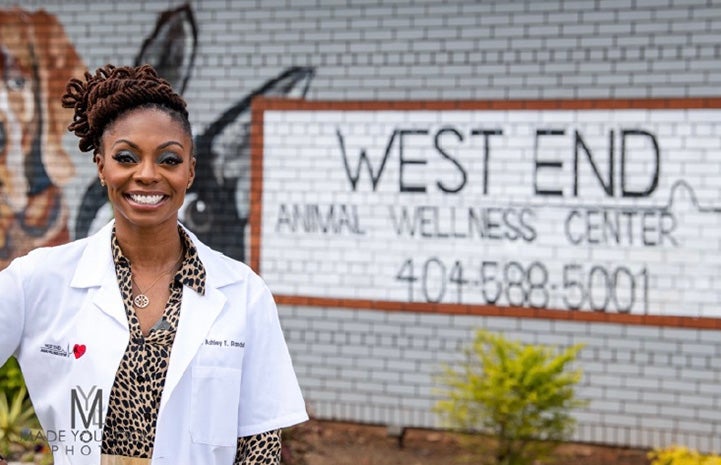
Tell us what you do in animal welfare, past and present? I am a small animal veterinarian in the downtown Atlanta neighborhood of West End. I opened my practice in 2015. Prior to that I was an associate veterinarian with a very large and successful small animal practice in Atlanta for 7 years. I graduated from Tuskegee University School of Veterinary Medicine in 2009 cum laude. My practice West End Animal Wellness Center services over 6,000 clients and over 9,000 pets. I have also just founded a non-profit organization called West End Cares which focuses on engaging kids of color in the animal and plant industry. WEC hopes to host its first event in 2022.
What do you want people to know about working in animal welfare? There's never a dull moment! It is truly one of the most rewarding things I've done. The human animal bond cannot be underestimated. I love helping pets and making clients smile. It can be tough physical work but very fun.
What do you think needs to change to make animal rescue and welfare work more welcoming to African American people? Representation matters!! I believe the best way to effect change is by creating a more diverse board within already existing nonprofit or rescue structures would be a great place to start. Often times good intentions miss the mark when representation is not present. Additionally, for people patronizing and volunteering within the organization need to see people of color in leadership positions and not just on the ground.
What would you like to say to African American people who want to get involved (or more involved) in working with animals and their people? I would say a great way to get started is by volunteering with your local shelter, humane society, or rescue group to gain experience. Other great ways to get more involved is through outreach, including West End Cares and other similar programs. Creating programing in early education is also a great way to introduce young people to animals.
Dr. Tierra Price
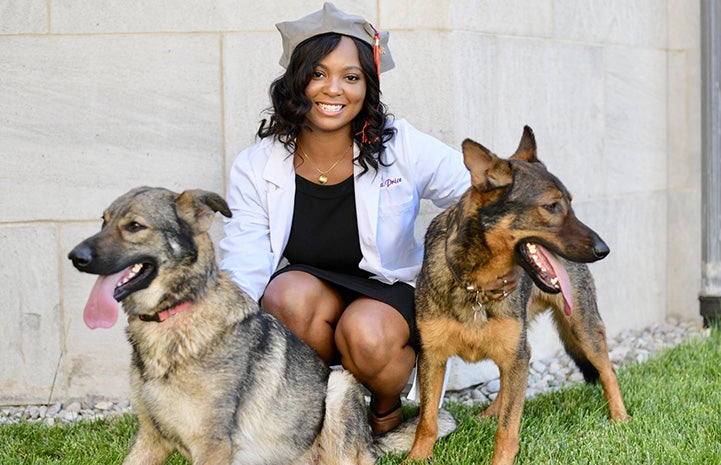
Tell us what you do in animal welfare, past and present? I basically grew up at my local animal shelter in Louisville, Kentucky. I worked there for a while as a volunteer and then as kennel staff. I left there to go to veterinary school where I got really interested in food security and food safety and how animals are treated from farm to table. Then I went on to work for a really large nonprofit in the high quality, high volume spay neuter space. It’s really important to me that everyone has access to have a companion animal, to have a pet, and that those pets are cared for.
What do you want people to know about working in animal welfare? I think animal welfare is a really rewarding space to work in. I really want to be able to see all of the groups of people in animal welfare be able to come together and form a common ground about care, access to care and how we can distribute those resources. But I really want people to know that animal welfare is everyone’s job. It’s not just a job for those working in the field of healthcare for animals or those who really love dogs. Our animals contribute to this planet just as much as we do and so we have to take care of them.
What do you think needs to change to make animal rescue and welfare work more welcoming to African American people? I think that the animal rescue and animal welfare spaces just need to take the time to learn about other people, welcome others, welcome different ideas, and different ways of life. A lot of what I see for animal rescue and animal welfare work are discrepancies in equalities and funding and really just denouncing certain ideas. You know, thinking that if a certain type of people have a certain type of dog, that dog is used for a certain purpose. Or, certain people don’t like animals, that’s a common myth that we often try to dispel. Everyone needs to be actively working to make sure that they’re including people, that they’re including everyone in the animal rescue and animal welfare space, and that they’re giving everyone equal opportunities.
What would you like to say to African American people who want to get involved (or more involved) in working with animals and their people? I think that for anyone that is African American that wants to get involved in working with animals, I know that it’s not always the straightforward path and so continuing to do the research and to reach out to people is really, really important. Forming a network of people that support you and that can mentor you and guide you is really important and that’s why I started Black DVM Network.
Black DVM Network is meant to be a safe space for Blacks in veterinary medicine and the animal health space, and so if you can find a network like that, join it. Come join us, actually. Find that network. Find that group. Look for the guidance, ask the questions that you need to ask to get to where you want to be. Sometimes you’re going to ask questions that you might not even know or you’re not sure if this is the right question – just go ahead and ask it. If you’re curious about anything, ask it, it will always open a new door and help you to see things in a new light.
Shafonda Davis
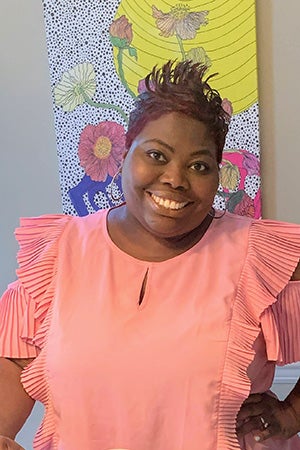
Tell us what you do in animal welfare, past and present? My journey in animal welfare began as a young person with a passion for animals with no professional experience. Today, I am a twenty- three-year veteran in animal welfare and a certified animal welfare administrator. I started as an adoption counselor at the Animal Protection Society of Durham. I have had the opportunity to develop skills through many roles within the shelter, all with a focus on helping animals and people. Although the learning curve was challenging, I always relied on my passions to remain focused on my goals. This helped me push through the many instances I felt unwelcomed in the field.
Eventually, I found my place in animal welfare through the shelter’s adoption program. My hard work allowed me to hold positions as adoption counselor, adoption manager, shelter director and finally as an executive director. I have been in my current position since 2014. My leadership role at the shelter has provided an opportunity to participate in positive change and growth, provide housing, medical and behavioral care to nearly five thousand animals a year. We also provide our community spay/neuter and pet food assistance. The Animal Protection Society of Durham (APS) has grown from a small, determined shelter with very little diversity to a strong mature organization with diversity in age, sexual orientation, gender and race within our staff and volunteer teams.
My commitment to animal welfare goes beyond the shelter walls to the animal welfare community. I serve on governance boards and committees, most notably CARE (Companions and Animals for Reform and Equity) and the DEI Leadership Committee of the Association for Animal Welfare Advancement. I also give back to my local community through service on local committees and boards that directly or indirectly improve the lives of people and animals.
What do you want people to know about working in animal welfare? Although working in animal welfare has not been easy, it continues to be rewarding. There are good days and bad days, but I often remind myself that most people are good and that all animals deserve care and love. So do people!
What do you think needs to change to make animal rescue and welfare work more welcoming to African American people? First, we need to acknowledge that there is a problem. After we acknowledge that problem, we must do everything we can to make people feel welcome and work on our personal known and unknown biases. Also, we must become familiar with having uncomfortable conversations around race. It is okay to question how we feel and react to racial inequities within our personal and professional spaces.
What would you like to say to African American people who want to get involved (or more involved) in working with animals and their people? Follow your passion. You belong anywhere you feel you should be to engage your purpose. Persistence has its privileges, so eventually the space that holds your purpose will be just right for you. So, I say shine on - you are stronger than you think.
Learn more
So, in recognition of Juneteenth, let’s uncover and celebrate the richness of African American contributions, both in and outside animal welfare. Afterall, “Until we are all free, we are none of us free.” – Emma Lazarus
Photos courtesy of Donovan Dodds, Cat Small, Mueni Rudd, Dr. Michael J. Blackwell, Johnny Jenkins, Dr. Callie Harris (Foley) and Dr. Ashley Randall